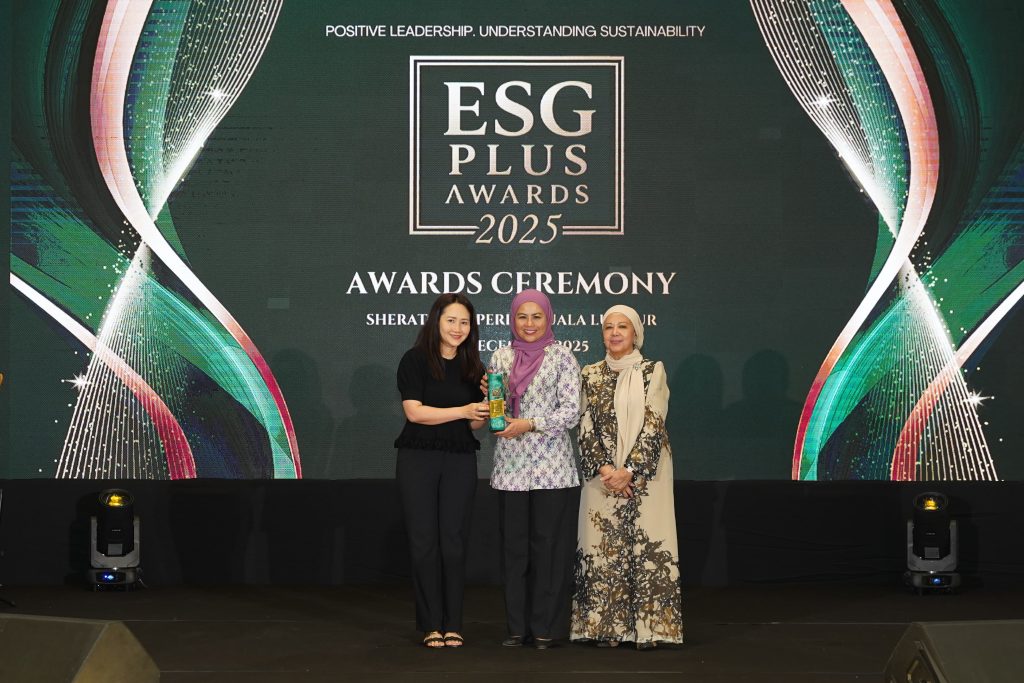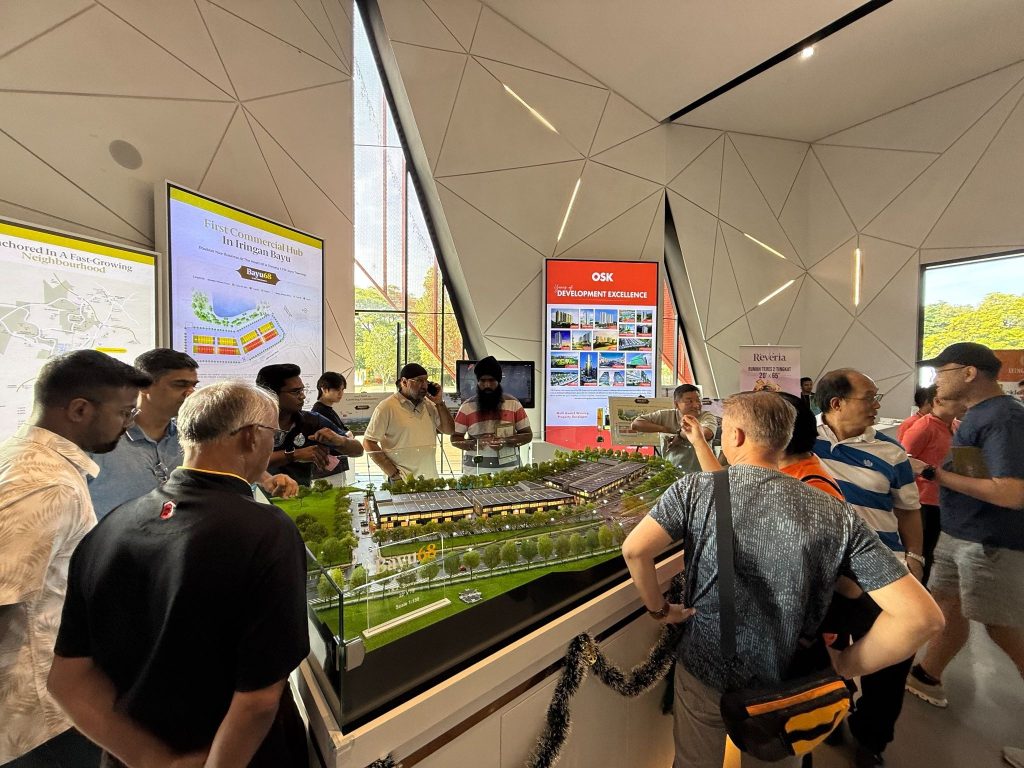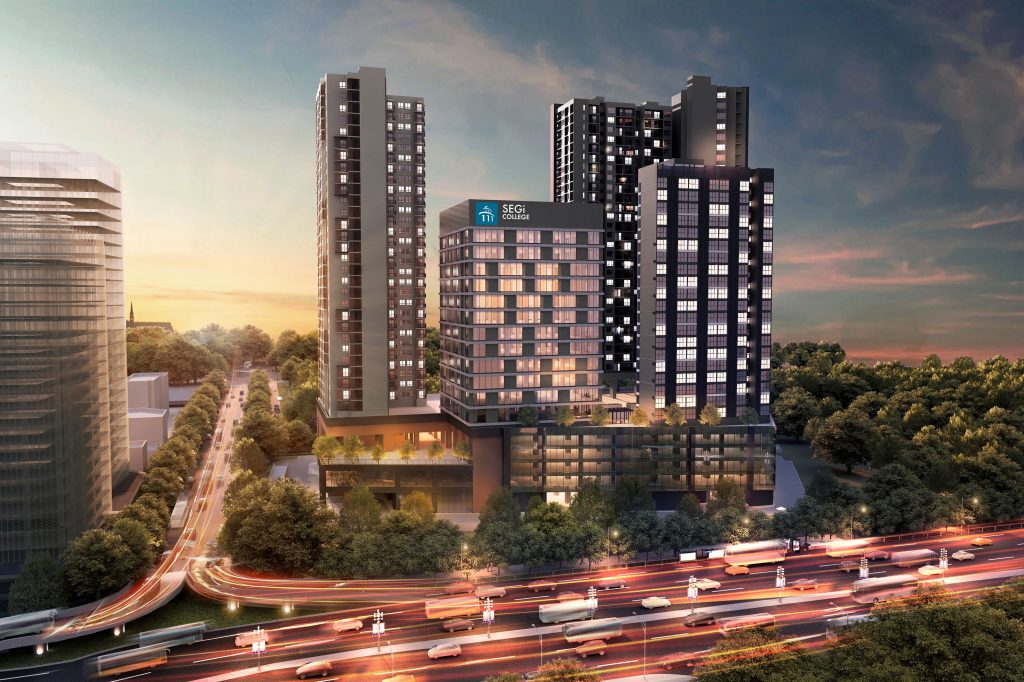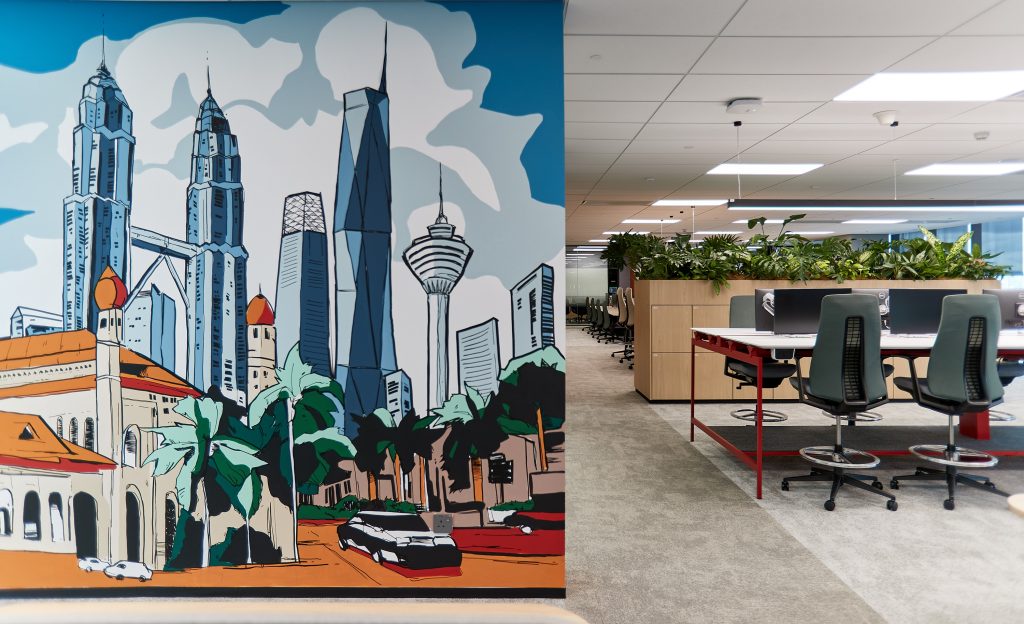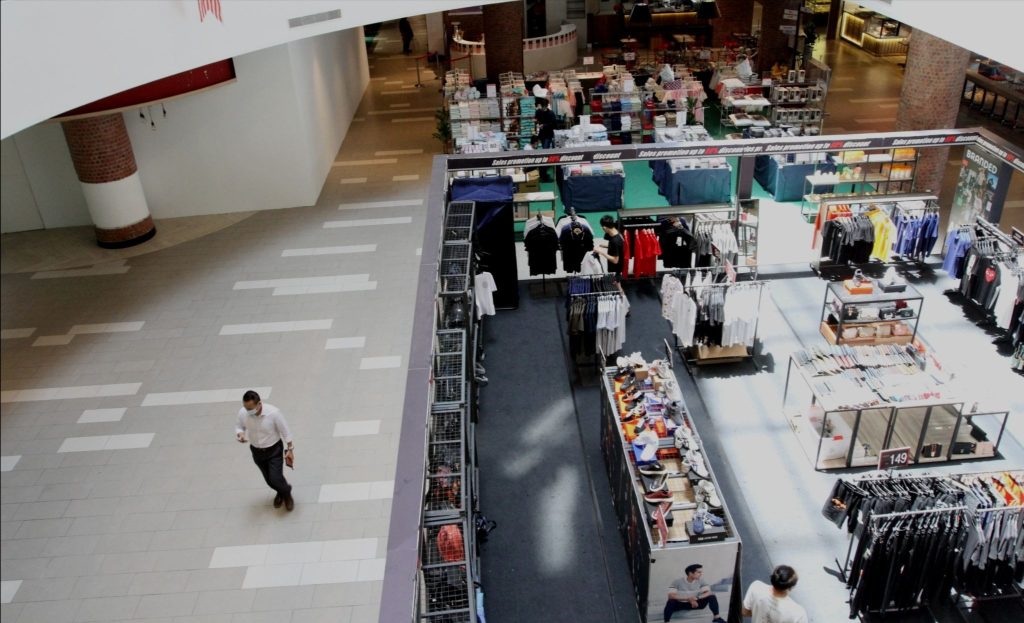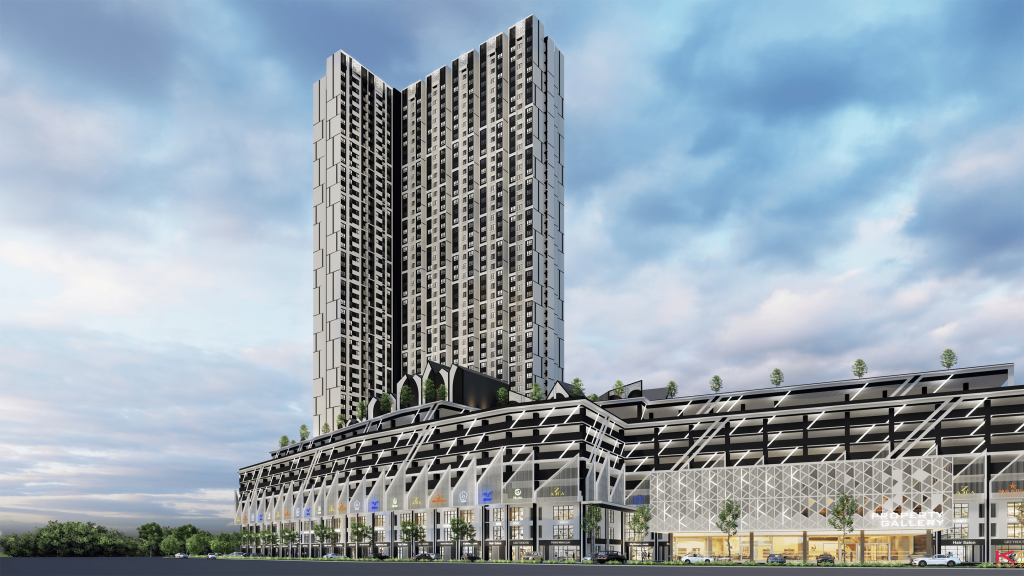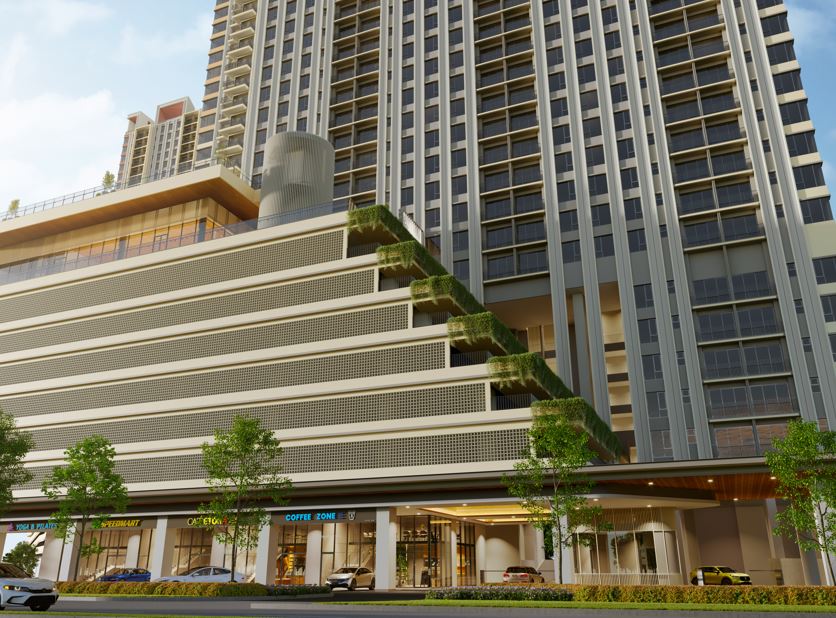
Today’s pool of users seek places that incorporate both the formal office-like setting and the informal home-like or the hip and relaxing vibe café-like setting.
A revised list of wants and preferences is changing the workplace
Contributed by Sulaiman Saheh
A typical scenario faced by a white-collar worker in an office setting is the five-day daily commute to a specific office building, settling into one’s allocated cubicle and working for the next eight hours before leaving. Rinse and repeat.
But today, three years since the Covid-19 pandemic, and close to a year since pandemic restrictions were mostly lifted to allow full economic re-mobilisation, we find ourselves in a position of having a revised list of wants and preferences when it comes to office work.
At the height of Covid-19, many corporate workers had to resort to work-from-home (WFH). While some lauded it to be a better workstyle option as it leaves room for other obligations and eliminates commute hassle, others find themselves experiencing WFH fatigue due to the blurring of the line between work and home. With no distinct clock-in-clock-out element, working hours became unclear and often beyond the stipulated nine to five. Spatially, some find WFH not feasible due to lack of proper desk space or privacy within their homes – especially for those residing in multi-tenanted homes with only one common space, ultimately creating an uncomfortable and limiting WFH experience. Then comes the best next solution - co-working.
As a service provider of desk spaces and meeting rooms, co-working revolves around the concept of a shared workplace, typically in somewhat of an office design and equipped with general office amenities under an aesthetically pleasing interior umbrella. Users range from freelance individuals to teams and large corporates, all looking for the right office space that is readily available for immediate use over a customisable length of period.
Co-working spaces have been around since pre-2010 with one of the pioneers being Regus who had opened Southeast Asia’s first-of-its-kind Business Lounge that includes different types of work and meeting spaces on top of other facilities and amenities in Petronas Towers, the heart of Kuala Lumpur’s Golden Triangle. Soon after, other providers gradually entered the scene. Some home-grown ones include PAPER + TOAST, Common Ground and Colony while international players include WeWork, IWG and Servcorp.
Expanding work beyond an office space
The acceleration of digitalisation has not only shifted the offline to online but also the removal of physical barriers and physical presence has expanded one’s office space dimensions to be beyond a fixed cubicle within an office building. With the utilisation and assistance of high-spec, all-in portable electronic gadgets and faster internet, office work is now doable on the go, anywhere and anytime (well, almost).
The term office is typically defined as a room or part of a building in which people work, especially sitting at tables with computers and phones, usually as part of a business or other organisation. Traditionally, most corporate settings have followed so but with the embracement of this new working style, the term office space has slowly shifted into work space as users of such space do not limit themselves to just the typical office setting. Rather, to find that right mixture of comfort, convenience and professionalism, today’s pool of users seek places that incorporate both the formal office-like setting while having the informal home-like or the hip and relaxing vibe café-like setting – to create a working area that nurtures creativity and open communication. Flexibility in usage is preferred where whichever space is needed can be on a flexible pay-per-use basis. Not only that, desk and room structures differ according to an individual’s or team’s spatial need, even for a gathering of different companies and communities requiring a common space under one roof.
Going further, having access to a space that is shared with individuals and teams of other organisations also creates opportunities to network and collaborate with each other. Collaborative efforts are made easier, more convenient and doable when everyone is readily present in a common space. The mobility and openness of a co-working setting create a more friendly and welcoming communicative environment as opposed to strictly divided department floors. But in the case where privacy and silence are needed, such rooms are also available to be used.
From hot desks to private pods and full-on private rooms with the added option to have your own dedicated space just for you over the contract period, co-working spaces have not only replicated the offerings of traditional office buildings but expanded the possibility of working beyond a geographically fixed location.
What’s Better, What’s not
But can it truly replace the offerings and prestige of a self-owned, self-branded office space or building? The short answer would be no. The extent of co-working replacing the traditional office setting depends on the priority of the organisation in question. For individuals and teams of the gig economy and SMEs who need not necessarily have to own a fixed physical property, be it in the form of a room, floor or an entire building itself, co-working presents a cost-friendly option to have the same access to setting and facilities without the hassle of property ownership, furnishings and maintenance of which the respective co-working service providers have taken to task for you. But for organisations who require their spaces to be specifically designed in a certain way and exclusivity to be enforced at all times for privacy, confidentiality and security sake, as well as for the portrayal of a corporate image, having your own property and exclusive address to yourself would be suited.
But then there is the option of blending the best of both working worlds and ultimately re-shape the future of working spaces. We cannot deny the exclusivity and prestige that comes with having a dedicated office space and being branded to your own preferred image, clearly identified by the logo proudly displayed on the outside of the building to mark your presence in the business world. And yet, as the pandemic had taught us a hard lesson, it is equally important to have ourselves be adaptive and quick-to-response in times of unprecedented changes and downturns. Office space today is defined more as a workspace and following the footsteps of new and more vibrant configurations rather than merely brick-and-mortar. More traditional office spaces are steadily morphing into a coworking-like, collaborative and open-communicative concept space. This is the evolving trend of office spaces that is becoming the new preference in the market – especially with more spotlight shined on ESG and ranking in employer popularity. These are neo-approaches in decisions to house an organisation’s typically largest asset, its people, in ensuring a more productive environment. Moreover, in a world where talent retention is fast becoming a concern to employers, especially amongst a global nomad-inspired millennial workforce, creating a conducive work space is quintessential to any business organisation.
In an organisation comprising different departments and teams, each with its own scope of responsibility and task coverage, the practicality of either a self-owned working space or flexible co-working space differs accordingly. In the case of departments handling confidential documents and databases, the high risk of a privacy breach or leakage puts private offices at an advantage. But in the case of other teams that run on a more ever-changing, seasonal dynamic based on the stages of a given project, having their workspace reflect the same flexible and changing nature makes for a more conducive overall working environment.
Accessibility and adaptability
At the end of the day, the evolution of office space to workspace does not reduce the relevance of either form of office/working space. Instead, the shift in perspective prompts a shift in how spaces function to their respective users. Rather than putting one over the other, it is more of creating a synergetic environment amidst the challenging commercial real estate scene we are facing now.
Additionally, the provision of co-working spaces in both central and suburban areas increases the level of accessibility and adaptability of business players, regardless of size, to working spaces according to their spatial and geographical needs. Even prestige to an extent can be achieved by way of location for co-working hubs located in sought-after areas at a more affordable price.

Sulaiman Saheh is the director of research at Rahim & Co International, a real estate consultancy firm in Malaysia. If there are any inquiries, please email sulaimansaheh@rahim-co.com.
Stay ahead of the crowd and enjoy fresh insights on real estate, property development, and lifestyle trends when you subscribe to our newsletter and follow us on social media.




